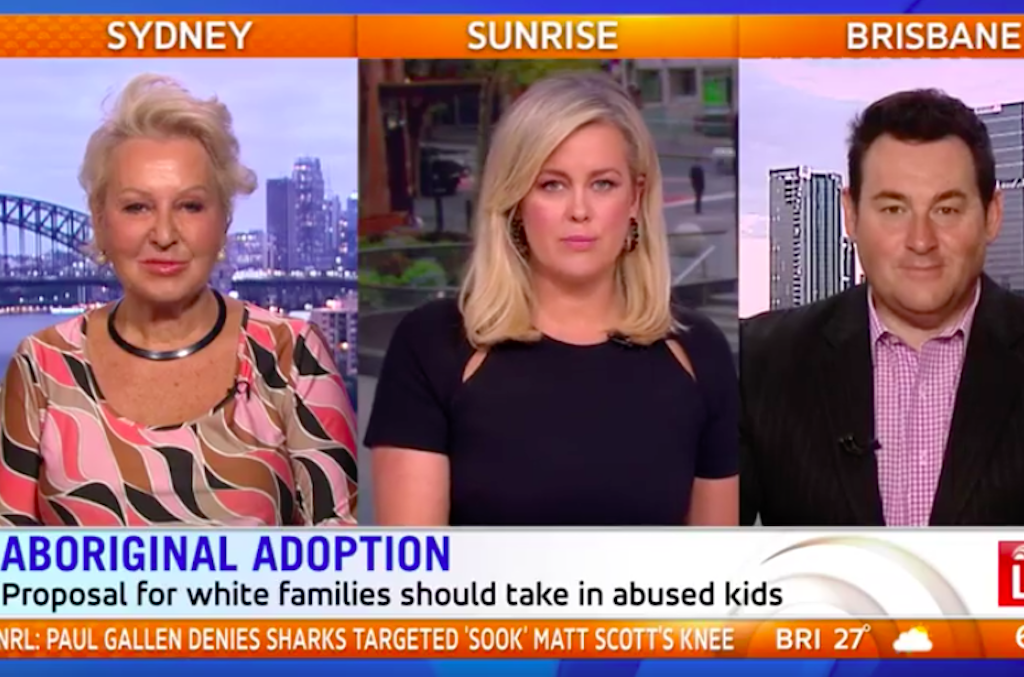The Stolen Generation That Never Stopped

Today marks eleven years since then-Prime Minister Kevin Rudd formally “acknowledged” the suffering caused by decades of mistreatment towards Indigenous Australians. Particularly, the mistreatment of our elders and those forcibly removed from their families and communities.
This article was originally published in February 2019.
These removals resulted in sexual abuse, domestic slavery, forced religious practices, and the stripping of culture and community through white assimilation policies. These removals continued and created intergenerational trauma that impacts us today.
It is only now that those removed between 1905 and 1967, those individuals subjected to that horrific pain, are sharing the harmful practices that occurred. Some are finding home, and others are still completely lost. Australia should seriously be ashamed of itself.
As I watched the Prime Minister express the apology on the big screen, my spirit broke.
While it is an innate part of healing that we acknowledge our past and the pain that exists, we cannot continue to speak as though it has stopped when it is still happening right now. I am here to tell you – the Stolen Generation has never stopped, and I am not buying any apologies or celebrating anniversaries unless there is appropriate action that allows our kids to come, and know home.
‘Sorry’ Means You Don’t Do It Again
I remember the 2008 apology day clearly. A moment the nation stopped to listen to what we thought was going to be the first step to seeing change for those subjected to removals and out of home care. I was in year six when the whole school was asked to attend the school hall, as I watched the Prime Minister express the apology on the big screen my spirit broke.
Because while Rudd was saying sorry for the removal and mistreatment of Indigenous people, that same year I had been removed from my sacred father, mother, family and community all due to ambiguous definitions of ‘neglect’ and falsified statements made to Family and community services (FACS), previously known as DOCS. This is the too common narrative that exists today when FACS — child ‘protection’ intervenes.
It is our children’s right, not a privilege, to know their community, their culture, their kinships and their truths without having them stripped away. Our kids belong with family, our kids deserve to come home.

I was eleven years old when I heard the sirens throughout the housing commission streets in the middle of the night, followed by my father saying, “I am sorry bub, but they are coming to get you”. I closed my eyes until I heard the knock at the door. From that moment on, my life changed forever.
When you are Indigenous in this country being born is enough for the state to place you in a ‘vulnerable’ category. However, as an Indigenous woman, I feel that our people are not vulnerable — we are in fact targeted.
I was targeted at birth due to my father presenting at the hospital to support my mother as a proud black man. It was from this moment on, FACS would — without an invitation — attend our family home, and somehow continue to present themselves wherever we were, profiling my parents and community.
Kevin Rudd does not get to be placed on a pedestal and praised for an unmeaningful apology that saw no action follow.
Actions Speak Louder Than Words
According to the Australian Institute of Health and Welfare, from June 30 2017 there were 17,664 Aboriginal and Torres Strait Islander children in out of home care in Australia. This is a placement rate of 58.7 per 1,000 children. In contrast, the rate for non-Indigenous children was 5.8 per 1,000. This means that the national rate of Aboriginal and Torres Strait Islander children in out-of-home care is almost 10 times the rate for non-Indigenous children.
My mother and father used to say words don’t mean much unless it is actioned. In 2008 when the National apology was embraced, I remember feeling these exact words and remembering that wisdom that my parents would share.
I am 22 years old, and after leaving the out of home care system at 18, I can assure you of just how dangerous the harm that the state causes when it intervenes with families and communities by tearing them apart instead of providing culturally appropriate early intervention and prevention support.
Pru Goward’s recent parting gift from politics was pushing for forced adoptions amendments to the child protection legislation in NSW, which made it easier to remove parental consent regarding children in out of home care. This means that after two years, the courts hold discretionary powers in deciding permanence and placing children in foster care up until the age of 18, while removing close to all prospects of restoration for children’s, families and communities.
This, again, is marginalising already oppressed individuals, families and communities. This recent change to legislation was also resisted against by Indigenous and Non-Indigenous people, frontline workers on the ground, protesters, activists, members of the stolen generation and community legal services. The response from government choosing to implement this amendment was a prime example of the broken leadership we have, and just how much we truly value the lives of children and young people. Not much at all.

It is time for the broken system to be made accountable for the stealing of our children, which results in ongoing institutionalisation, suicides, and continued intergenerational trauma.
I do not accept your apology, I accept the process of healing and appropriate action.
Our kids belong with family, our kids deserve to come home.
Action it.
Vanessa Turnbull-Roberts is a proud Bundjalung woman. At the age of 11, she was forcibly removed from her Father and placed in out-of-home care. She used her personal experience as motivation to study law and social work. Vanessa is an active member of her community, advocating against forced adoptions legalisations and its process of being a continued stolen generation.
